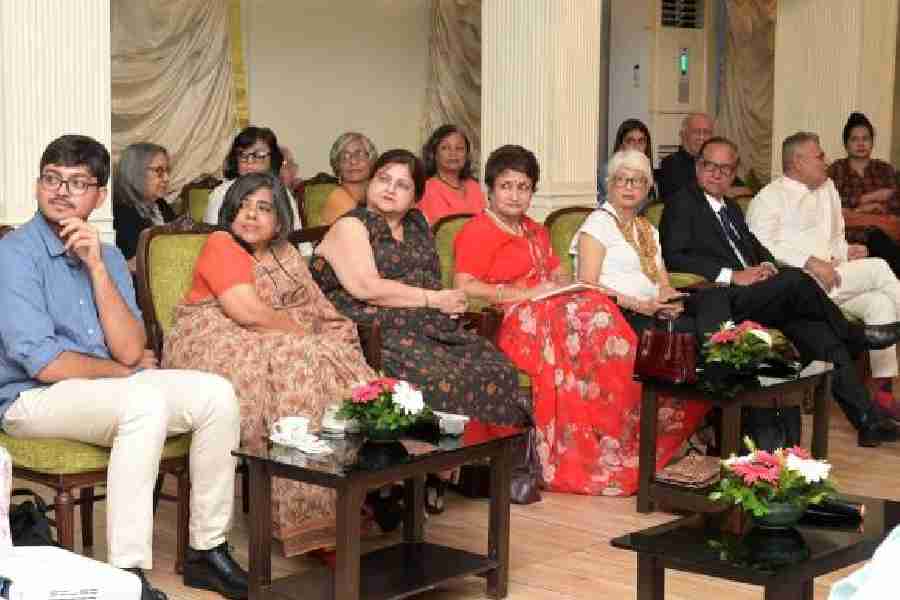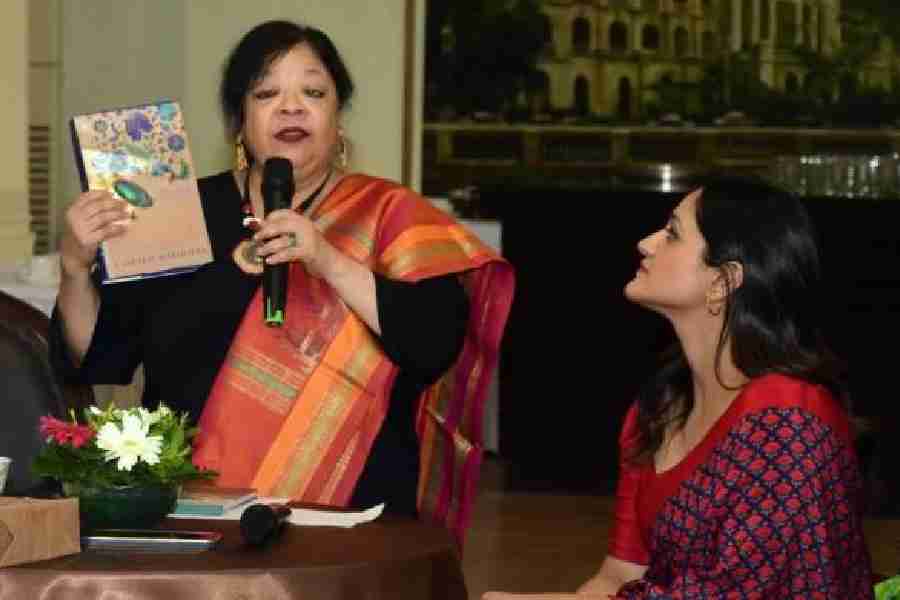Julie Banerjee Mehta, professor and t2 columnist, hosted author Aanchal Malhotra at The Bengal Club and it turned into an evening of passionate literary discussion prompted by the author, artist and oral historian on July 8. The 34th Bengal Club Book Club event, conceptualised and curated by Mehta, started with Kunal Sen, the outgoing president of The Bengal Club, addressing the audience. Taking over, Mehta poignantly introduced the essence of the exquisite tapestery that Aanchal has weaved together in her works— across generations, across borders, across temporal and spatial narratives that surround the Second World War, Partition and life in its most intricate moments.
Several others joined the discussion through an online meet, thus making the event truly a global one, aligning with the core idea that presented itself during Mehta’s conversation with the author, that the Indian Partition is not a one-dimensional phenomenon, a stagnant memory of a collective past but it has rather permeated far and wide through space and time. Aanchal’s work consists of two non-fiction books — Remnants of Partition: 21 Objects from a Continent Divided (2017) and In the Language of Remembering: The Inheritance of Partition (2019), apart from her latest read The Book of Everlasting Things. They bring to light the fact that at the centre of the human existence what remains is memory and the relationships we have with each other and the world around us, both natural and material.
When asked about the reason she chose the Partition as her cause, Aanchal recalled that in her family and all across India, Pakistan and Bangladesh, the Partition is generally an avoided topic in common households. When discussed, it is mostly the memories of the good old days viewed through the haze of nostalgia. Aanchal reflected: “Really nothing touched on the brutality and certainly nothing that talked about the difficulties in rehabilitation in an independent India or Pakistan… objects have the power to transport us, and they have the power to remember people who are no longer here but to see that happen before your eyes… was incredible and I felt completely smitten by this idea that an object can take you places and collect your past within it.”
The Book of Everlasting Things is a story that navigates the personal themes of familial bonds, passion, grief and joy against the backdrop of mainstream narratives of war and politics. Enmeshed in a beautifully complex juxtaposition of reality and fiction, the story is of Samir Vij who falls in love with Firdaus Khan in Lahore before the Partition, but it is also the story of Vivek and Samir, their bond that survives not just for the blood they share but through memory, perfume-making and the path Samir follows in the aftermath of Partition.

Members and guests at the book club meet
Several members of the book club had a chance to comment on the book and pose their questions to the author. Some of the most thought-provoking concerns explored during this repartee were the representation of an inter-religious relationship in the novel, the theory of post memory pertaining to Partition narratives, the role that the olfactory sense plays in Malhotra’s books, the universal experience of constructing “imaginary homelands” among immigrants and the unavoidable reality that awaits them. The event came to an end with a sense of urgency that needs to be applied to documenting oral narratives and processing a trauma that still lives and breathes in various different forms across the Indian subcontinent and its diaspora.
